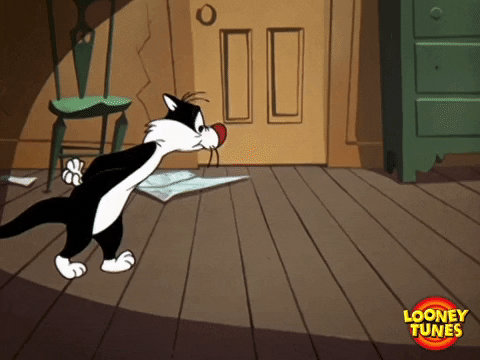Hi, I’m Kate. Ask an Author is a free newsletter providing advice and support for authors at all stages of writing, publishing, and hand-wringing. If you know someone this applies to, you can forward them this email and encourage them to sign up. Have a question? Fill out this form and I’ll answer it in a future response.
QUESTION:
Do you have any tips for how to write faster, or make myself write on a deadline? I find I struggle with bigger projects that take longer to complete. I get overwhelmed, change my mind about what I’m working on or what I want it to be, and often wind up walking away. I want to understand my own writing process better, so that I can try to create some systems that I hope will work for me.
- Under Pressure
Dear Under Pressure,
I’m not sure from your question whether the pressure you’re under is self imposed (you have projects you want to finish!!!) or external (you have a project under contract with a timeline and people waiting and money on the line and you have to get it done!!!). My suggestions are a little different depending on the scenario, although certainly there’s plenty of overlap, too. I think I’m going to tackle this question in three separate posts, because there’s so much here to unpack. (Can I do that? It’s my Substack, I can do anything!).
Make sure you’re subscribed so you don’t miss the next installments in your inbox, and I’ll come back and hyperlink these once the posts are up:
Part I: How to Write Faster (without sacrificing quality)
Part II: How to Write Under a Deadline (without panicking)
Part III: How to Tackle Large Projects (and see them through)
How To Write Faster
Accept that in your initial draft, you may, alas, have to sacrifice what feels to you like quality. But that’s okay. It’s a draft. Its job isn’t to be perfect. Its job isn’t even to be all that good. Its job is simply to be done. The less you interrupt yourself to obsess over every word you might change later anyway, the more you can direct your attention forward.
Maintain a schedule, if you can. Every morning/evening/commute/ten minutes before bed/whatever unit of time you have available to you and that you call your writing time, dedicate it to doing the thing. Can’t do every day? No problem—pick what works for you. Miss a day? Don’t beat yourself up—that isn’t helping. Hate schedules and find it constricting? Then don’t apply this part to you! But the only way to write faster is first to write, so we’re trying to create the conditions that allow for a habit to build.
Free up brain space. The idea of the schedule, for me, is that part of speed comes from familiarity. When you’re used to writing, and deep in your project, it won’t take as long to get your brain warmed up and back inside your story. And when you eliminate all the questions about when will I have time to write, where will I be when I’m doing it, what am I even writing about today, all that brain space is freed up to do the actual writing instead of the administrative tasks that accompany it.
Prioritize sustainability over short-term gains. Sure, there may be times when you need to do a big push. But maintaining your schedule keeps the focus on steady, sustainable growth (which I'll talk about in Part II: Deadlines as well). If I went out and ran a marathon (lol never), I wouldn’t ask my body to do a long, grueling run the next day. Our brains need recovery time, too, and maintaining a sustainable pace may seem counterintuitive when we’re talking about writing faster, but the idea is to build up a steady practice — not do a huge sprint, burn out, and put the manuscript aside for ages because just sitting in front the computer feels miserable/futile/exhausting/worse than the dentist’s chair. (Sorry, dentists.)
Consider your goals. Why do you want to write faster? What’s “wrong” with your current pace? If you current pace is that actually you aren’t writing very much, ever, then maybe “faster” is really a question about “how do I get my butt in the chair and keep it there so I can do the thing I want to do, even if that thing is sometimes difficult and frustrating and doesn’t go the way I want it to?” My advice is still the same: build a sustainable habit that allows you to feel successful in the small, day-to-day moments, because ultimately when you’re writing a novel, or working on any large project, the end result will be the accumulation of all those smaller, day-to-day moments. (Can you see where this is going in Part III: Large Projects?).
Do a time audit. How are you spending your time, for real? Like lawyers who bill in ten-minute increment, keep track of how you’re actually spending that writing time you’ve so carefully set aside for yourself. Get granular. Be honest. How many minutes are you writing and how many are you…not? I don’t mean thinking, because thinking is part of the process, and that includes daydreaming and looking out the window and going for walks and talking to yourself in the shower (just me?) and pacing in a never-ending circle.
I mean reaching for your phone, checking your email, looking for the next perfect song on your playlist, etc. Knowing where your time is going can help you gently, kindly, re-center yourself if you find you aren’t spending your writing time the way you’d imagined.
Practice. Writing is a skill. So is writing faster. The more you write, the more you come to know your own creative practice and your needs. There aren’t any shortcuts, but repetition really does help.
All of the above is a bit more psychological. If you’re looking for more nuts and bolts, here are some tricks you can try:
Dictate. I can speak faster than I can write, and it stops me from going back and editing. I use the microphone in gmail on my phone, or in google docs, or Word, but I’m sure there are more sophisticated versions of this.
Change it up. I write on my phone, or get out a notebook and write longhand, when I just want to explore an idea without the pressure of the Official Document on the Computer that I have to Get Right. I often get a lot more words down this way than I expect, and it helps me keep working on my story when I’m on the subway, when it’s late and I don’t want to be looking at a screen, etc.
Pomodoro method. Set a timer for X amount of time and Y amount of break. If you know you only have to write for 20 minutes and then you get a 5 minute break, what can you get done in those 20 minutes? Can you do it straight through, without checking your phone/looking for another distraction or dopamine hit? When the 5 minutes hit, STAND UP AND STRETCH. Your back/legs/neck/soul will thank you.
Writing sprints. Similarly to the Pomodoro method, sometimes groups will text each other or share when they’re starting a “sprint” — a set amount of time, anywhere from say 10 minutes to an hour — where they’re going to write as much as they can, and then share their word count when they’re finished. It can be helpful to have an accountability buddy, whether you share your word count or not. A note of caution: just getting words down can have diminishing returns if your goal is only the number of words and not their suitability. It’s possible to take this too far, ya know?
Cut out distractions. Turn off wifi. Put your phone in the other room. Eliminate temptation. It makes a difference. For real.
There is value in taking our time, in learning as writers how to move more slowly through ourselves and our work. A speedy first draft is often followed by a slower second draft, just as a slower and more meticulous first draft may mean faster revisions down the line. I’m not advocating for one or the other, or for speed as an inherently beneficial part of one’s writing practice.
But I certainly hear the concerns behind this question, and I think there are things to be gained from learning to write faster — which may also mean, at its core, simply writing more often — without losing the care and attention that good work ultimately needs.
How do you make the words come faster? Share your tips and thoughts in the comments, I’m sure we all have a lot to learn from each other.
xo Kate
Have a question? Click the button below and I’ll answer it in a future letter! Remember to subscribe and stay tuned for Part II: How to Write Under a Deadline (without panicking).


